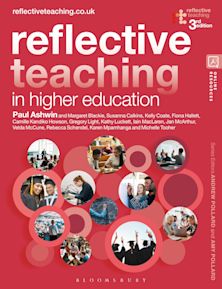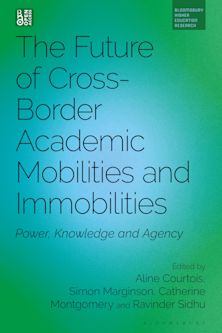- Home
- ACADEMIC
- Education
- Higher Education
- Place-Based Service Learning in Higher Education
Place-Based Service Learning in Higher Education
Building Trust and Opportunities Over Time
Place-Based Service Learning in Higher Education
Building Trust and Opportunities Over Time
You must sign in to add this item to your wishlist. Please sign in or create an account
Description
Place-Based Service Learning in Higher Education: Building Trust and Opportunities Over Time looks at the intersection of student research and community-based learning in a concentrated location over a period of ten years. This study examines the use of an urban neighborhood as a place-based source for engagement partners and opportunities. With a sustained, programmatic commitment to the neighborhood, Northern Kentucky University sought to build trust over a period of ten years with residents, nonprofit agencies serving them, and other stakeholders, who in turn could generate a steady stream of engagement opportunities valued by the neighborhood and valuable to students’ learning. Analysis found that this commitment indeed built trust with partners and produced mutually beneficial opportunities, including lasting relationships, impactful work in the community and retention of faculty and students.
Table of Contents
Introduction
Chapter 1: Birth of an Idea
Chapter 2: The Community
Chapter 3: The Curriculum
Chapter 4: The Students
Chapter 5: The Faculty
Chapter 6: Conclusion and Advice for Higher Education
Appendix A: Newport and NKU: Project Hope 2013-2023
Appendix B: Community Survey
Appendix C: E Designation
Appendix D: Student Survey
Appendix E: Faculty Survey
Appendix F: Focus Group Guiding Questions
Bibliography
About the Authors
Product details
| Published | 20 Nov 2023 |
|---|---|
| Format | Ebook (PDF) |
| Edition | 1st |
| Extent | 1 |
| ISBN | 9798216287094 |
| Imprint | Lexington Books |
| Illustrations | 2 maps; 6 tables |
| Publisher | Bloomsbury Publishing |
About the contributors
Reviews
-
Detailing how to build a sustainable, place-based initiative that is grounded in community-campus reciprocity, this book confirms that Northern Kentucky University is a leader in thoughtfully serving the campus and wider community. The book outlines the skillfully constructed and comprehensive strategy used by NKU to leverage university and community resources in the pursuit of lasting, quantifiable change. Higher education faculty and staff will find the individual classroom experiences, the guiding questions, and the reflections from students & faculty to be helpful as they build their own experiential service-learning models.
Catherine Copeland, American Association of State Colleges and Universities

ONLINE RESOURCES
Bloomsbury Collections
This book is available on Bloomsbury Collections where your library has access.



































